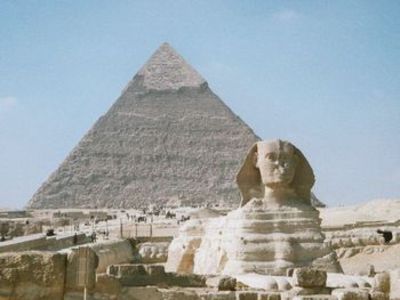Climate Change and Civilization

I have several times now sounded warnings about the impact of climate change on health and the re-emergence of some infectious diseases.
Today I’d like to tell you about a remarkable theory that could have profound implications for how we see ourselves and our place in the world.
Dr. Nick Brooks from the Tyndall Centre for Climate Change Research at the University of East Anglia has recently proposed a remarkable hypothesis. It has long been assumed that civilization started where is did because conditions had become very hospitable, but people banded together for mutual protection and for hunting and agriculture.
By contrast, Nick Brooks proposes that severe climate change was the primary driver in the development of civilization. He proposes that without climate changes thousands of years ago, we might have remained farmers, herders and hunter-gatherers.
The early civilizations of Egypt, Mesopotamia, South Asia, China and northern South America were founded between 6000 and 4000 years ago when global climate changes, driven by natural fluctuations in the Earth’s orbit, caused a weakening of monsoon systems resulting in increasingly arid conditions. These first large urban, state-level societies and monumental architecture such as the pyramids, emerged because diminishing resources forced previously transient people into close proximity, in areas where water, pasture and productive land was still available.
It is certainly remarkable that all of these places where the first urban civilizations developed, arose in once humid and productive environments that are now largely covered by desert. One theory has been that many of these deserts, as well as the Sahara desert, were the result of over-grazing by goats.
In a presentation to the British Association Festival of Science earlier this month, Dr. Brooks said, “Civilization did not arise as the result of a benign environment which allowed humanity to indulge a preference for living in complex, urban, ‘civilized’ societies. On the contrary, what we tend to think of today as ‘civilization’ was in large part an accidental by-product of unplanned adaptation to catastrophic climate change. Civilization was a last resort – a means of organizing society and food production and distribution, in the face of deteriorating environmental conditions.”
He added something that we now see all over the world: for many, if not most people, the development of civilization meant a harder life, less freedom, and more inequality. The transition to urban living meant that most people had to work harder in order to survive, and suffered increased exposure to communicable diseases. Health and nutrition are likely to have deteriorated rather than improved for many.
The new research challenges the widely held belief that the development of civilization was simply the result of a transition from harsh, unpredictable climatic conditions during the last ice age, to more benign and stable conditions at the beginning of the Holocene epoch some 10,000 years ago.
This work also presents some profound philosophical implications, because it challenges deeply held beliefs about human progress, the nature of civilization and the origins of political and religious systems that have persisted to this day. It suggests that civilization may not be our natural state, but the unintended consequence of adaptation to climatic deterioration – a condition of humanity “in extremis.”
Dr Brooks said: “Having been forced into civilized communities as a last resort, people found themselves faced with increased social inequality, greater violence in the form of organized conflict, and at the mercy of self-appointed elites who used religious authority and political ideology to bolster their position. These models of government are still with us today, and we may understand them better by understanding how civilization arose by accident as a result of the last great global climatic upheaval.”
This is an extraordinary throwback to the ideas of romantic philosophers like Jean-Jacques Rousseau who contended that Man is good by nature, but it corrupted by society and civilization.
Though we need to continue to be very alert to the dangers inherent in climate change, could it be that it is actually an invitation to evolve?






